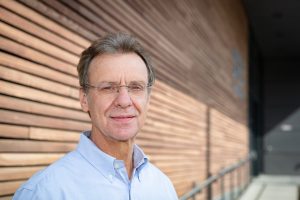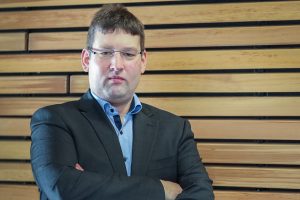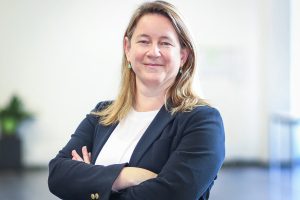Bielefeld University was founded in 1969 with an explicit research assignment and a mission to provide high-quality research-oriented teaching. With far-reaching aims to reform nearly every area of higher education, the University has made valuable contributions to educational reform in Germany and upholds its interdisciplinary, innovative and reform-oriented character to this day. With 25,000 students, it now comprises 13 faculties covering a wide range of subjects in the arts and humanities, natural sciences, and technology. In addition, a medical faculty is currently in the process of being established – a decisive step for UNIBI on its way to becoming a full university. Since FP7, UNIBI has successfully participated in more than 90 EU-funded projects, in ten cases acting as coordinating institution.
The Research Institute for Cognition and Robotics (CoR-Lab) pools the Bielefeld University’s research efforts in cognitive edge computing, model-driven development and analysis of cognitive robots, machine learning and cognitronics in close collaboration with industrial partners e.g. Honda Research Institute Europe GmbH, Miele & Cie.; Cie and Harting Technology Group. CoR-Lab hosts, besides several national e.g. BMBF projects, the EU-cascaded-funding projects COVR-CoSMo, RobMoSys-CMCI and RobMoSys-VeriComp. CoR-Lab researchers have since 2007 published well over 1000 publications in fields like developmental robotics, neural networks, machine learning, model-driven software development, computational intelligence and human-robot interaction.
The research group “Cognitronics and Sensor Systems”, directed by Professor Ulrich Rückert, is part of CoR-Lab at Bielefeld University. Our common research goal is the systematic design and the demand-oriented implementation of innovative microelectronic circuits and systems. We focus on massively parallel and reconfigurable system architectures. Our realizations cover embedded processor architectures and energy efficient sensor nodes as well as scalable server platforms. On application level, we put special emphasis on distributed cognitive systems which are characterized by a decentralized organization utilizing architectures that autonomously adapt their system resources to changing environmental conditions or processing requirements. The group comprises 35 Ph.D. students and two postdocs, funded by EU, DFG, BMBF, and industry.
Key persons involved:



- Professor Dr. -Ing. Ulrich Rückert – rueckert@techfak.uni-bielefeld.de
- Jens Hagemeyer – jhagemey@cit-ec.uni-bielefeld.de
- Dr. Carola Haumann – chaumann@cor-lab.uni-bielefeld.de
Website: https://www.uni-bielefeld.de/(en)/
